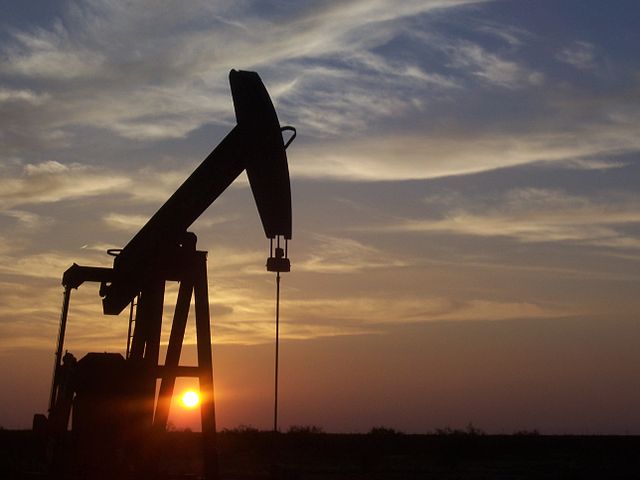Somewhere along about 2005 I started hearing about “Peak _____,” where the blank is some resource such as oil, water, food, and so on. The pique about “Peak” was based on the notion that “we” (and I’m not sure what that means) had reached the point of maximum production, and that the future was a bleak choice between bad alternatives. Mankind’s profligate use of this nonrenewable resource was supposed to presage an era of shortage and shrinking options.
Now, I was familiar with the famous “bet” between Julian Simon and apocalyptic-professional Paul Ehrlich, from the 1980s, in which Simon let Ehrlich choose five resources, and bet that the prices would fall in real terms. The prices of all five did in fact fall. Since, some people have quite sensibly objected that if other decades were selected, and other resources were chosen, Ehrlich might have won and Simon might have lost. But that’s not what happened. Ehrlich lost.
Of course, Ehrlich was used to being embarrassed by having his predictions turn out badly. Remember, Ehrlich had famously said, in his 1968 book, The Population Bomb:
The battle to feed all of humanity is over. In the 1970s hundreds of millions of people will starve to death in spite of any crash programs embarked upon now. At this late date nothing can prevent a substantial increase in the world death rate…The train of events leading to the dissolution of India as a viable nation is already in motion… If I were a gambler, I would take even money that England will not exist in the year 2000.”]
One would assume that Dr. Ehrlich was much abashed by the failure, the absurd failure in fact, of these predictions. But no; the most dangerous place in the world is still standing between Ehrlich and microphone. More recently, Ehrlich has predicted with the same certainty as before that cannibalism was mankind’s only hope for survival:Is it perfectly OK to eat the bodies of your dead because we’re all so hungry?” The human race is “moving in that direction with a ridiculous speed.”]
It was the very absurdity of Ehrlich’s view of human society and its capacities to work together that led Simon to take what was actually a sucker’s bet, though I can’t say that I blame Simon: to see supposedly skeptical media types gulping down Ehrlich’s garbage science would have provoked me, too.
The point is that Simon was lucky to win, just as a number of people (including the very careful Paul Sabin, in his 2013 book The Bet, have said. The reason is that the direction of prices was not, or should not have been, the core of “the bet.” Simon’s real claim was that we cannot run out of anything if markets are allowed to work. Specifically, what that means is that property rights are specified clearly and prices are free to adjust. Since the most important mechanism that prevents “us” from running out of anything is price increases, I’ve never understood Ehrlich’s preening and apologetics after the fact.
Prices Keep Us from Running Out of Anything, Ever
Here’s something you may not have thought of: Is it moral for me to use something that someone else values more than I do? I think you can make an argument at least that the answer is “no.” If I know you need something, and I value it much less, but I use it up and keep you from using it then I am acting badly. I may have a reason to act this way, but as a general abstract matter we would like things to be used by the people who value them most.
Is there any way to make sure it works out this way? Well, in many cases this is exactly what the price system accomplishes, though we rarely hear things described this way. Markets combine the information in prices with the incentives to exchange if the person who has something values it less than the person who needs it.
Think about it: Suppose I have a widget, and I value it at $5. You value that widget at $10. We could say that I should just give it to you, but then that imposes a sacrifice on me. Maybe there is a place for charity here, but the point is that if you pay me $7 for the widget I am better off than before, and I’m happy to give the widget up. But you are better off also. I’m better off, and I’m not using the thing that you value more. So I benefit materially, and act morally. Win-win!
What does any of this have to with Simon and Ehrlich? Remember, Ehrlich was predicting catastrophe, scarcity, and shortages, which would imply that prices would go up. Simon was predicting that we would “never run out of anything,” which might also mean that prices would go up. For Simon to predict that prices would actually go down was pretty brave.
But it has nothing to do with the basic bet, which is that if there are property rights and prices are free to move we can never run out of anything. The reason is that if we start to run out of something, prices rise. And when prices rise, three things happen:
- Consumers use less
- Producers make more
- Entrepreneurs figure out ways to make substitutes
That is the core of Simon’s prediction: we can’t run out of anything precisely because prices will go up, and trigger the three self-correcting mechanisms above. So the debate about whether Simon or Ehrlich was right about the direction of prices is just silly. Simon is right (we can’t run out of anything, ever) even if Ehrlich is right (prices rise sharply, and trigger reactions 1, 2, and 3).
The “Peak Oil” hysteria of the late 2000’s was idiotic. There was never any reason to believe that we were running out of oil. And, unsurprisingly, as soon as prices rose the result was:
- Consumers cut back, choosing more fuel efficient cars and shifting away from oil as a power source.
- Alternatives, such as shale oil, fracking, and new areas of exploration were developed, until the current amount of known reserves is nearly double what we knew of in 1985 (that’s double, twice as much, more not less, etc.)
- Engineers and entrepreneurs were spurred to work harder on the problems of batteries, solar power, wind power, and other alternatives.
Of course, we can run out of stuff. We can run out of pelagic fish like cod or anchovies, taken from “open” fisheries in the “commonly-owned” oceans. We can run out of passenger pigeons, and rhinoceros, and other animals that are not owned by anyone and for whom the price mechanism cannot operate. What is the common feature of stuff we can run out of?
It’s managed by the state. Because of “market failures,” the state manages common pool resources. And that’s where the real danger lies. The environment is not safe, not because we are running out of stuff produced by markets but because we cannot control the resources managed by the state.
And that is what is actually scary. Forget Peak Oil; the problem is the Peak State.



